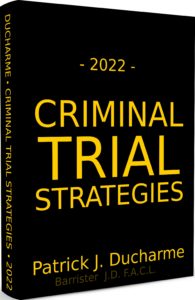Prior to the Supreme Court of Canada’s decision in J.F.1 there were two schools of thought by which a person could be found responsible as a party to the offence of conspiracy. The first school was developed by the Court of Appeal for Ontario in McNamara2 and, Vucetic3 where the court embraced a more expansive view of party liability to conspiracy under section 21 of the Code that included aiding or abetting the furtherance of the conspiracy’s unlawful object not just aiding or abetting the agreement itself.
An alternative, and less expansive, theory of party liability to conspiracy was embraced by the Court of Appeal for Alberta in the case of Trieu4 and the Court of Appeal for Quebec in Bérubé5 where party liability was not based upon knowing the object of the conspiracy and intending to assist the conspirators in attaining their unlawful criminal object, but instead, was based upon the alleged acts of assistance or encouragement being performed for the purpose of aiding or assisting the act of agreeing. This narrower approach focuses on the essence of conspiracy, the agreement. Assisting or encouraging a person to become a member of a pre-existing conspiracy may be the basis of a conviction for conspiracy. It is the act of assisting the agreement. It also includes aiding or abetting the formation of a new agreement because that is also the act of assisting the agreement.
The Supreme Court of Canada in J.F. rejected the broader approach and approved the narrower approach. As a consequence, party liability is now limited to cases where one aids or abets the initial formation of the agreement, or aids or abets a new member joining a pre-existing agreement. The court found that party liability to conspiracy is proven by an individual aiding or abetting the actus reus of a conspiracy, the conspirators’ act of agreeing. One does not become a party to the offence of conspiracy by aiding or abetting the furtherance of the conspiracy’s unlawful object.
The above is the an excerpt of Patrick J Ducharme’s book, Criminal Trial Strategies, available at Amazon or in bulk through MedicaLegal Publishing.
Read or listen to the Preface and Introduction and subscribe to Patrick Ducharme’s Youtube Channel.

